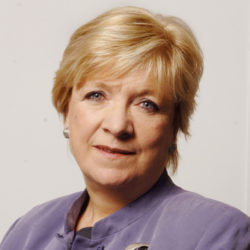
Polly Toynbee is a Guardian columnist and broadcaster and was formerly the BBC’s social affairs editor. She has won a National Press Award, has been What the Papers Say and British Press Awards columnist of the year, and labelled the most influential columnist in the UK.
After dropping out of her degree at Oxford, Polly worked in a factory and used this period, as well as time working ‘undercover’ as a nurse and an Army recruit, as the basis of her first book, A Working Life (Hodder and Stoughton, 1971). She also started work at The Observer, before moving to The Guardian and then to the BBC as social affairs editor.
Polly returned to her ‘undercover’ research for her book Hard Work: Life in Low-Pay Britain (Bloomsbury, 2003) over 30 years after A Working Life was published. For a year she took up the challenge of living in one of the most neglected council estates in Britain and taking whatever minimum-wage jobs were on offer at the job centre. In telesales and cake factories, as a hospital porter or a dinner-lady, she worked at a breakneck pace for cut-rate wages, alongside working mothers and struggling retirees. The experience has informed a great deal of her criticism of government, policy and business.
Renown for her left-leaning, social democratic stance, Polly is loved and disliked in equal measures by Britain’s political classes. Seen as the epitome of left-wing, politically correct reactionism, Polly regularly inspires the opprobrium of the right-leaning press and politicians although her columns and broadcasting never shrink from outspoken criticism of all of the major political parties, and of government as a whole.